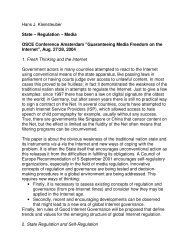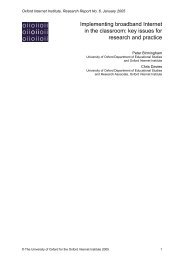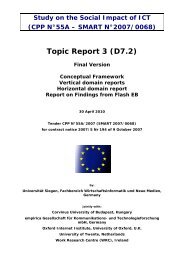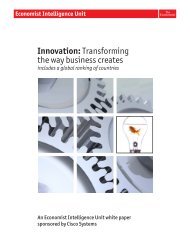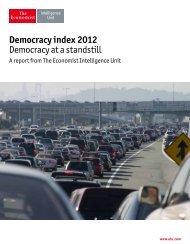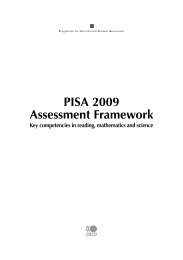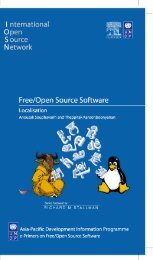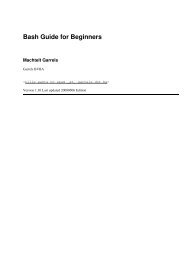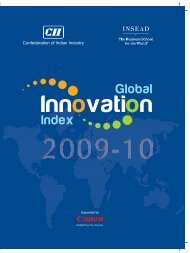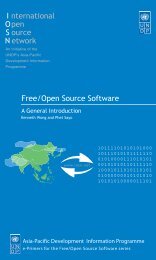1 PUBLIC POLICY FOR A KNOWLEDGE ECONOMY Joseph E ...
1 PUBLIC POLICY FOR A KNOWLEDGE ECONOMY Joseph E ...
1 PUBLIC POLICY FOR A KNOWLEDGE ECONOMY Joseph E ...
You also want an ePaper? Increase the reach of your titles
YUMPU automatically turns print PDFs into web optimized ePapers that Google loves.
support the new knowledge economy. Restraints against trade in genetically engineered<br />
plants and other Luddite measures can similarly impede scientific progress.<br />
Thirdly, the White Paper seeks to encourage collaboration, but does not sound as<br />
strong a warning as I would about collaboration slipping into collusion, or providing the<br />
basis for tacit coordinated anti- or at least non-competitive policies.<br />
Financial Markets<br />
I believe that one of the important reasons for success of the U.S. in the arena of<br />
the knowledge economy are its vibrant capital markets, and especially its venture capital<br />
funds. American capital markets have long been far more competitive than those in many<br />
other countries. Anti-trust authorities would have looked askance at the kinds of<br />
concentrations in banking that are found in many other countries. While it is not apparent<br />
what else one can do to encourage this kind of innovative lending, clearly tax policy may<br />
be able to play a role.<br />
Tax Policy<br />
In the U.S. there are some features of the tax code that have encouraged<br />
innovation, some that have discouraged it. The incremental research and experimentation<br />
tax credit has long received official blessing, but has only been renewed on a year-to-year<br />
basis. Perhaps this is because there is some evidence questioning its efficacy. There is a<br />
recently enacted provision to encourage small new enterprises (by exempting capital<br />
gains), but it is too soon to tell its effectiveness, including the extent to which it helps<br />
create new knowledge based enterprises.<br />
The limitations on loss deductibility, however, serve as a major deterrent to risk<br />
taking. 23 Research, by its very nature, is a risky undertaking. It is like drilling for oil.<br />
Success is measured by whether one strikes one successful hole in ten. The corporate<br />
income tax is often described as leading to the government as a silent partner; but while a<br />
partner who shares risk can encourage risk taking, a partner that shares in the successes<br />
but not in the losses is likely to discourage risk taking.<br />
24



